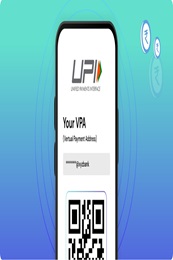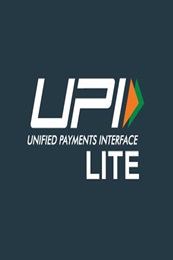What is a SWIFT Code?
April 25, 2025

When transferring money across borders, understanding SWIFT codes is essential. Over 11,000 financial institutions in more than 200 countries use SWIFT codes to facilitate secure and efficient communication for international transactions. According to the Society for Worldwide Interbank Financial Telecommunication (SWIFT), its network processes over 42 million messages daily, highlighting its critical role in the global banking system.
What is a SWIFT Code?
SWIFT stands for Society for Worldwide Interbank Financial Telecommunications. Also known as Bank Identifier Code (BIC), it is a unique alphanumeric identifier assigned to a bank. These codes are globally recognised and standardised under the International Organization for Standardization (ISO) 9362.
A SWIFT code consists of 8 to 11 characters:
- First 4 characters: Represent the bank code
- Next 2 characters: Denote the country code (e.g., IN for India).
- Following 2 characters: Indicate the city code (e.g., BB for Mumbai).
- Optional last 3 characters: Specify the branch code (e.g., XXX for the head office).
How Does a SWIFT Code Work?
SWIFT codes function as a messaging system, enabling banks and financial institutions to communicate securely about cross-border transactions. Here’s how it works:
- Initiation: The sender provides the recipient’s bank details, including the SWIFT code.
- Message Transmission: The sender’s bank sends an encrypted message via the SWIFT network to the recipient’s bank, detailing the transaction.
- Processing: The recipient’s bank verifies the message, processes the payment, and credits the funds to the recipient’s account.
Importance of SWIFT Codes in Banking
- Accuracy: SWIFT codes ensure that funds are transferred to the correct financial institution.
- Security: Advanced encryption protects sensitive transaction data.
- Global Reach: SWIFT’s extensive network connects financial institutions worldwide.
- Efficiency: Automates and streamlines the international fund transfer process.
- Compliance: Ensures adherence to international regulations and standards.
SWIFT vs. IBAN: What’s the Difference?
While SWIFT codes identify financial institutions, the International Bank Account Number (IBAN) specifies individual accounts in international transactions. Both are often required for cross-border transfers but serve distinct purposes:
| Feature | SWIFT Code | IBAN |
| Purpose | Identifies the bank | Identifies the account |
| Length | 8-11 characters | Up to 34 characters |
| Scope | Institution-level | Account-level |
Key Benefits of Using SWIFT Codes for Cross-Border Transactions
- Simplified Transactions: Eliminates manual errors in communication.
- Secure Transfers: Protects against unauthorised access and fraud.
- Cost-Effective: Reduces administrative and operational costs.
- Rapid Processing: Ensures timely fund transfers.
- Transparency: Provides detailed transaction tracking.
Common Use Cases for SWIFT Codes
- International Money Transfers: Sending funds to a recipient in another country.
- Trade Finance: Facilitating global trade transactions.
- Foreign Exchange: Settling currency conversion transactions.
- Corporate Banking: Managing cross-border payments for businesses.
Final Thoughts
SWIFT codes are indispensable in the modern banking landscape, enabling seamless and secure cross-border transactions. By providing a standardized communication framework, SWIFT codes bridge the gap between financial institutions worldwide, ensuring efficiency and accuracy.
Enjoy easy banking with Ujjivan Small Finance Bank. Save more with our high-interest Savings Account and Deposit products. Need cash for your business or personal needs? Apply for MSME Loans or Micro Loans with us – we offer competitive rates and quick disbursal. We also offer vehicle loans and home loans tailored for your unique requirements. Experience a smooth banking journey with Ujjivan SFB!
FAQs
1. What is a SWIFT code used for?
SWIFT codes are used to identify financial institutions in international transactions, ensuring funds reach the correct bank.
2. How do I find my bank’s SWIFT code?
You can find your bank’s SWIFT code on your bank statement, the bank’s website, or by contacting customer service.
3. Are SWIFT codes the same as IFSC codes?
No, SWIFT codes are for international transactions, while IFSC codes are used for domestic transfers within India.
4. Can a SWIFT code be reused?
Yes, a SWIFT code is unique to a bank branch and can be reused for multiple transactions.
5. What happens if I enter the wrong SWIFT code?
Funds may be delayed, returned, or sent to the wrong institution. Always double-check the code before initiating a transfer.
6. Is a SWIFT code required for receiving money?
Yes, the recipient’s bank SWIFT code is essential for international transfers.
7. What are the charges for using SWIFT?
Banks may levy charges for outgoing and incoming SWIFT transactions, varying by institution and amount.
8. How long does a SWIFT transfer take?
SWIFT transfers typically take 1-5 business days, depending on the banks involved.
9. Can individuals obtain a SWIFT code?
No, SWIFT codes are assigned to financial institutions, not individuals.
10. Are SWIFT codes universal?
Yes, SWIFT codes are globally standardized, making them universally recognizable for international banking.
Latest Blogs

Top Savings Account Schemes to Start the New Financial Year 2025–26
April 19, 2025
The beginning of a new financial year isn’t just about filing taxes or revisiting your investment strategy—it's also the perfect time to re-evaluate where you park your money.

Disappointed with Your Savings Account? Switch to This Small Finance Bank
April 17, 2025
In April 2025, following the Reserve Bank of India’s (RBI) repo rate cut from 6.25% to 6%, several major banks have reduced interest rates on savings accounts.

7 Steps to Get Started Your Home Loan Application Process in India
April 16, 2025
Buying a home is one of the biggest dreams for most of us. But with rising property prices, it's not always possible to pay the full amount upfront. That’s where a home loan in India becomes a helpful option.

How to Keep Your Money Growing in a Volatile Market: A Comprehensive Guide
April 15, 2025
The Indian financial landscape in early 2025 has been quite unpredictable. According to Reuters, equity mutual fund inflows slumped to an 11-month low in March 2025 due to growing concerns around sectoral imbalances and global uncertainties.

Is Closing Your Home Loan Early Good or Bad for Your Credit Score?
April 15, 2025
In the world of personal finance, owning a home is often seen as the pinnacle of financial stability.





